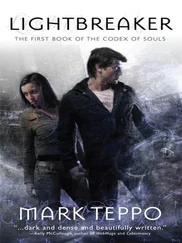A few more came out. I thought that was all, but another two emerged.
Then no more.
“He’s not there!” I thought, at last.
And yet, when it seemed as though there was no one else, he too appeared.
The door closed immediately behind him, without a sound.
Each of the children went off in their own direction, none of them exchanging a word, or any gesture of goodbye.
I was about to come out from the corner where I’d been hiding, to go up to the boy, to take his schoolbag and take him back to his little house far away in the middle of the woods. But then I stopped myself, since he’d already said no to me when I’d offered before.
“What world is this?” I wondered as I watched the children walking alone in the dark, with their little bare legs sticking out below their smocks, and their schoolbags. “Where, while everyone’s asleep, there are dead children who come out of night classes in silence, alone, and no one knows about it, and no one sees them. They find no one standing there at the door, they don’t even look up in the dark because they know there’s no one waiting for them. They go off alone, who knows where … That boy will now cross the deserted village, will take the lane up as far as the beginning of the ridge, then the other narrower path overgrown with vegetation and brambles which climbs through the woods, deep in the night, in the darkness, alone, and will reach his little house, and switch on that little light … How sad it is for dead children like that when they leave dark schools, at night, alone! But then … isn’t it just as sad for those alive?”
It’s getting colder. I begin to feel the air much more, against my face. Even the light is colder — clearer and colder. Something’s also happening to the animals, big and small, on the ground and in the air. I notice it when I’m sitting looking out above this steep drop in the evening or at night, or when I’m walking along the paths in the woods. I seem to be hearing different sounds, a sort of bustle, among the leaves of the trees overhead that are beginning to lose their greenness and dry up, behind the bramble bushes from which come the patter of paws or little padded feet that run away at the sound of my footsteps, but at the last moment, as though they were busy with other tasks, so absorbed in their thoughts that they’re only aware of my presence when it’s almost too late. And slow, eerie, grunts from points very close.
I still go every two or three days to visit the boy. I stop the car in the usual place, by the broken tree trunks. I go into his house without saying a word. Sometimes I take a few things I’ve bought, in a plastic bag that he then uses for the garbage. He hasn’t said no.
“Do you want to stop and eat with me?” he asked unexpectedly this morning when I arrived.
I’d gone there rather earlier than usual because I couldn’t manage to do anything else, I couldn’t manage to be anywhere else.
This time it was me who hesitated. I was about to say no, but then I saw the boy smiling at me for the first time.
I could see that small broken tooth between his lips that were always slightly open — perhaps he didn’t breathe so well through his nose due to his adenoids.
“How did you break that tooth?” I happened to ask, just like that, though it had nothing to do with anything.
“In a fight!” he replied, raising his little head in a gesture of pride.
I stood there, rigid, without responding.
I didn’t know what to say. I kept silent. The boy also looked at me in silence, with his round, serious, anxious eyes.
“Who’s cooking?” I then asked, with a smile, to break the long silence.
“Me! Me!” exclaimed the boy, running toward the cooker and the sink.
He began pulling the vegetables out of the bag that I’d brought, washed them under the tap, standing on the upturned crate, and immediately began slicing them, rapidly, holding them firmly with the hand that wasn’t holding the knife.
I sat on the chair, facing him, not saying a word. I watched his little hands in amazement and his little nails that moved back at lightning speed as the knife advanced, cutting more and more pieces of vegetable. And then as he filled the pot beneath the tap, holding it with more and more difficulty as it gradually filled with water and its weight grew, standing on the upturned crate to reach the level of the sink, and then as he put the pasta in as soon as the water had started to boil, quite a long time later, because water up here takes longer to boil.
“What’s your name?” I blurted out.
All at once he became serious.
“I don’t know,” he answered, shaking his little head.
“What do you mean?”
He turned and looked at me, helpless.
“I can’t seem to remember.”
“But you must have a name!”
“I don’t know.”
But I realized he was still thinking, that he had something else to add.”
After a while, he turned and looked at me again.
“My schoolmates call me Putty” he suddenly said.
“Why?”
He shook his head again.
“I don’t know.”
Then, for a while, I just watched him as he was preparing the food in front of the sink and at the cooker, standing on the crate, with his back to me.
I got up, since it was almost ready and it was time to set the table.
“The tablecloth is there!” he said, pointing to one of the drawers. “I’ve only just washed and ironed it.”
“Really? You iron as well?”
“Of course!”
“What with?”
“I found an old iron here.”
I took the tablecloth from the drawer, all neatly folded and ironed. I opened it, spread it over the table and put two napkins in front of the two places. I took dishes, cutlery, and glasses, reaching over the boy’s head to get to the plate rack while he was dressing the salad in a plastic bowl.
“Try the pasta as well, to see if it’s done!” he said, as he bit a strand of spaghetti that he’d pulled from the pot with a fork.
I took some too, and chewed it.
“Yes, it’s done!” I said.
He switched off the gas, lifted up the full pot, with difficulty, holding the handle with both hands above his head. He turned toward the sink where the colander was ready.
I went up to him. I took the colander, lifted it up, turned the steaming mass of spaghetti into it, holding the pot as well, and then dropped the spaghetti into another bowl that was already there on the cooker.
The boy then took a large piece of butter that he’d cut with a fork from a block he’d taken out of the fridge. He began grating cheese over it with a small narrow grater, the kind normally used for nutmeg.
I stirred the pasta, to melt the butter and the cheese, and placed the bowl in the middle of the table.
We sat down. We began serving ourselves with a large fork with long wide prongs that the boy had pulled from the cutlery drawer.
He finished putting the pasta into his dish, I into mine. There was still a little left in the bowl.
“Take it!” he said. “It’s too much for me. I’m only small.”
We began rolling the spaghetti with our forks.
Neither of us spoke. All that could be heard, in the silence, was the light sound of chewing. I was just aware of the boy’s head, eating intently. He seemed pleased, I thought.
“It’s good!” I said eventually.
He lowered his head a little and blushed.
From time to time you could hear the sound of water as we filled our glasses from a bottle that the boy had filled from the tap and had placed in the middle of the table before we’d sat down.
We stayed like this for a while, with the empty dishes in front of us. Then the boy took them to the sink. We put some salad onto our plates and began to eat it.
Читать дальше












